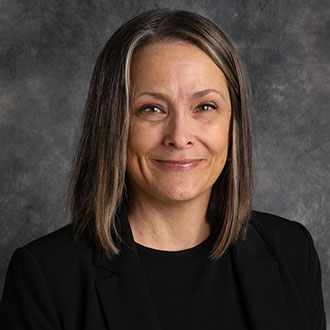Education
- B.S. in English, Minnesota State University
- M.F.A. in Creative Writing, Minnesota State University
- Ongoing professional development through The Loft Literary Center and regular participation in webinars and workshops focused on writing, pedagogy, AI, and digital tools in education.
Professional Memberships
- Association of Writers & Writing Programs (AWP)
- Conference on College Composition and Communication (CCCC)
- Modern Language Association (MLA) – Digital Humanities & Writing Studies Divisions
- National Council of Teachers of English (NCTE)
- Sigma Tau Delta (STD)
- Writing Center Professionals of Minnesota (WCPM)
Teaching Philosophy
WRITING IS THINKING & GOOD WRITING TELLS THE TRUTH
In the age of AI, the ability to write has never been more critical. At the heart of my teaching is the belief that writing is not just a method of communication, but our most powerful tool for thinking, questioning, and discovering what we truly believe. Writing is thinking, after all, and it allows us to slow down our thoughts, externalize them, and return to them with fresh eyes. Those symbols on the page? They’re your thoughts—that’s YOUR thinking, and it matters!
Unlike speaking or visual media, writing provides space to record thoughts in real time, revisit and revise our thoughts, track the development of an idea, and engage with our thinking in a deliberate, visible way.
Not only is writing thinking, but good writing tells the truth. We return to this idea again and again by asking: Is what I’ve written true? What IS the truth? How might others respond to this truth? Through brainstorming sessions, drafting, revision, and risk-taking, students clarify their thinking and strengthen their voices. The essay—far from being dead in the age of AI—remains a space where students’ most important intellectual and personal work can take shape.
PROCESS OVER PRODUCT
In my courses, students aren’t expected to get it right the first time. I regularly model failure by sharing my own drafts, missteps, and revisions. We treat writing as an ongoing process, not a polished performance. Using a grading contract, I assess students based on their effort, engagement, and willingness to take creative and intellectual risks, not on whether the final product is flawless. Embrace the chaos!
STORYTELLING IS EVERYTHING
Whether writing an academic argument, a humorous narrative, an advertisement, or a multimodal presentation, we are always telling stories. I encourage students to see storytelling as a powerful tool that can clarify ideas, deepen empathy, and shift perspectives.
To help students recognize the deep structure of storytelling, I often draw on the work of renowned scholars and artists who examine how narrative patterns reflect universal human experiences and connect us to one another. In literature and creative writing classes, we explore archetypes, character roles, and the arc of transformation—the hero’s journey—as a way to better understand why certain stories resonate and how to use or subvert these patterns in original ways.
In other words, we study the “rules” so we can break them with intention and creativity.
FLEXIBILITY & CHOICE MATTERS
Students learn best when they feel a sense of ownership over their work. As such, I encourage students to choose their own topics, shape assignments alongside me, and experiment with different modes of expression from alphabetic text to digital and visual formats. In writing courses, this often means choosing their own essay topics and screenplays to study and create. In literature courses, students who contract for an “A” are encouraged to select their own novels to read and analyze. Rooted in Universal Design for Learning principles, I offer scaffolding and examples, not rigid templates. When students feel agency, they take creative risks, and that’s where the joy of learning begins. Let’s have fun!
AI SHOULD SUPPORT THINKING, NOT REPLACE IT
I integrate and model tools like ChatGPT, Claude, InQuizitive, Speechify, Google NotebookLM, and Canva (etc.) to promote digital literacy and support and elevate student learning, not to automate it. I also respect students who prefer to learn without tech and make space for that, too. Luddites are welcome! My goal is to help students engage critically and creatively with digital tools while staying grounded in their own thinking.
Biography
Before teaching, Professor Johnson served as a freelance writer for over ten years. During that time, she wrote journal articles, dabbled in legal writing, composed grant applications for various organizations, and provided editorial services to professional and creative writers. Johnson’s works have appeared in Mason’s Road, affiliated with Fairfield University Online Literary Journal; Soviet Peaches: A Literary Magazine; and Capstone Press, where she has published a dozen children’s books. Johnson’s poetry won an Honorable Mention for CALYX Journal’s Tenth Annual Lois Cranston Memorial Poetry Prize, and she has been the recipient of the PLRAC/McKnight Emerging Artist Grant and the Minnesota State Arts Board/Artist Initiative Grant.

